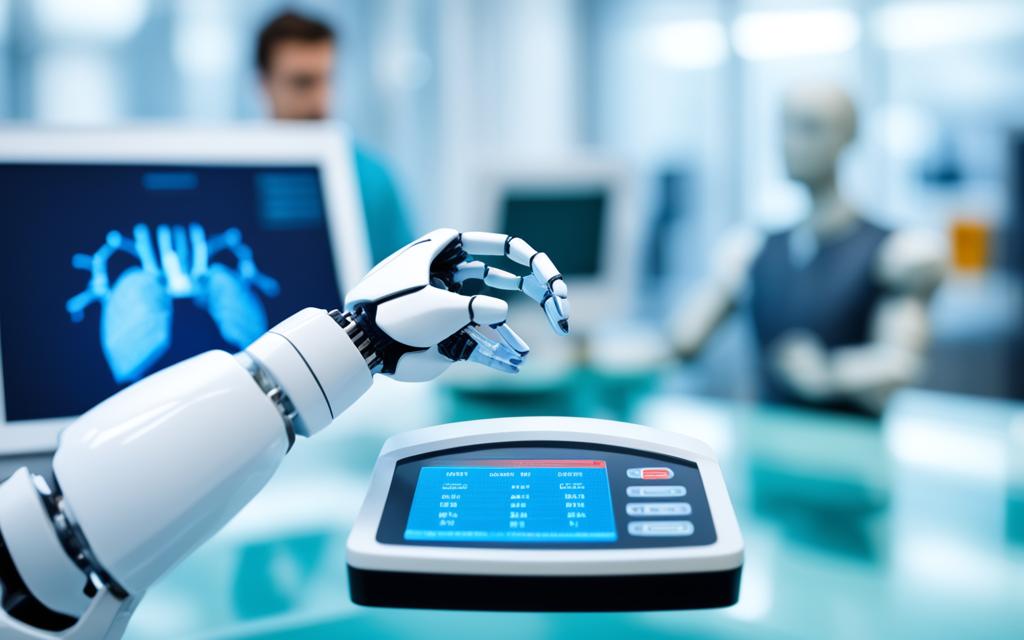AI Ethics Oppugned: The Debate Over Moral Machine Learning
Artificial intelligence (AI) has transformed various aspects of our lives, from the way we communicate to the way we make decisions. However, with great power comes great responsibility. The debate over ethics in artificial intelligence has become a pervasive topic in recent years, as we grapple with the implications of AI decision-making.
One particular aspect of this debate is the emergence of moral machine learning, which raises profound questions about the ethical foundations of AI systems. The code conundrum surrounding AI decision-making forces us to ponder the responsibility and accountability of these intelligent machines.
The consequences of AI ethics reach far beyond individual decision-making. The ethical implications of AI have societal impacts that need to be carefully considered. This is why scholars and experts have dedicated their efforts to delve into the complex web of ethics in artificial intelligence.
In the following sections, we will explore different perspectives and challenges in AI ethics, and discuss the future of responsible AI development. Let’s dive into the fascinating world of AI ethics together.
Understanding AI Ethics: Perspectives and Challenges
When it comes to AI ethics, there is no shortage of perspectives. From the utilitarian approach that prioritizes the overall benefit to deontological and virtue ethics perspectives that focus on moral principles and character, the discourse around AI ethics is as diverse as it is dynamic.
However, amidst this rich tapestry of viewpoints, one challenge stands out – the lack of clear guidelines and ethical frameworks for AI development and deployment. As AI continues to advance, the absence of a standardized framework for ethical decision-making raises concerns about accountability and responsible AI practices.
The complexity of AI systems further complicates the ethical landscape. These intricate machines possess remarkable learning capabilities and the power to adapt, making it difficult to anticipate their actions. This unique characteristic of AI introduces new and unforeseen ethical dilemmas, requiring thoughtful consideration and proactive solutions.
Bias and discrimination in AI decision-making processes are also pressing concerns. The potential for AI algorithms to perpetuate existing biases and inequalities demands greater scrutiny and conscientious intervention. To ensure fairness and equity, it is crucial to address these biases within AI systems.
Scholars and researchers emphasize the importance of transparency and explainability in AI systems. Understandably, entrusting significant decisions to machines necessitates an understanding of their reasoning and decision-making processes. Transparent AI systems not only enhance accountability but also promote trust and confidence in their use.
Shaping ethical practices in AI requires the involvement of various stakeholders. Policymakers play a critical role in setting boundaries and ensuring ethical guidelines align with societal values. Industry leaders must prioritize ethical considerations in AI development, embedding ethical frameworks throughout the process. Additionally, the general public’s awareness and engagement are pivotal in holding AI technologies accountable and driving ethical AI adoption.
AI ethics is a multiperspective maze, brimming with challenges and dilemmas. From grappling with the lack of ethical frameworks to addressing biases and ensuring transparency, fostering ethical practices in AI is a collective endeavor of academics, experts, policymakers, and conscientious citizens.
So, let us delve deeper into the world of AI ethics, exploring the perspectives, confronting the challenges, and envisioning a future where responsible AI development aligns with ethical considerations and societal values.
Acknowledging Perspectives on AI Ethics
To navigate the complex field of AI ethics, it is crucial to understand the different perspectives that shape the discourse:
- Utilitarian Approach: This perspective emphasizes maximizing overall benefit and minimizing harm, focusing on the consequences of AI actions.
- Deontological Ethics: Grounded in moral principles, this perspective focuses on the inherent rights and wrongs of AI actions, regardless of outcomes.
- Virtue Ethics: Centered around character and virtues, this perspective prioritizes cultivating AI systems that exhibit moral excellence and align with ethical values.
Each perspective brings valuable insights and raises essential questions in the ongoing discourse surrounding AI ethics.
Challenges in AI Ethics
Despite the diverse perspectives, several challenges persist in the realm of AI ethics:
- The lack of clear guidelines and ethical frameworks for AI development and deployment inhibits responsible AI practices and hampers accountability.
- The complexity of AI systems and their ability to learn and adapt create unprecedented ethical challenges that necessitate thoughtful consideration.
- Bias and discrimination in AI decision-making processes pose significant concerns, requiring robust measures to ensure fairness and unbiased outcomes.
- Transparency and explainability in AI systems are vital for building trust and understanding the decision-making processes, enabling accountability.
Addressing these challenges requires collective effort and collaborative action from all stakeholders involved in AI development and deployment.
| Challenges in AI Ethics | Solutions |
|---|---|
| Lack of clear guidelines and ethical frameworks for AI | Establish standardized frameworks and guidelines for responsible AI development and deployment. |
| Complexity of AI systems and their ability to learn and adapt | Promote ongoing research and education to understand and address the unique ethical challenges posed by AI systems. |
| Bias and discrimination in AI decision-making | Implement robust measures to identify and mitigate biases, ensuring fairness and equitable AI decision-making. |
| Transparency and explainability in AI systems | Develop AI systems that provide transparent explanations for their decisions to enhance accountability and trust. |
The Future of AI Ethics: Towards Responsible AI Development
To ensure responsible AI development, it is imperative to establish ethical regulations and guidelines. These regulations will serve as a foundation for embedding transparency and accountability into AI systems, enabling ethical decision-making and minimizing risks. Without such measures, AI technologies can become a black box, potentially leading to unintended consequences.
Furthermore, the development of comprehensive AI governance frameworks is crucial in addressing the ethical implications of AI. These frameworks will provide a much-needed structure to guide the responsible development and deployment of AI technologies. They will also ensure that AI systems operate within ethical boundaries, prioritizing fairness, inclusivity, and human welfare.
Achieving responsible AI development requires collaborative efforts among industry leaders, academia, and policymakers. By working together, these stakeholders can establish ethical standards that align with societal values and cater to the diverse perspectives on AI ethics. This collaboration will foster a multi-dimensional approach that considers the impact of AI technologies on various sectors, including healthcare, finance, and transportation.
Moreover, ongoing research and education on AI ethics are essential for progressing in responsible AI development. Continuously exploring the ethical challenges and opportunities presented by AI will promote a deeper understanding of its potential implications. By staying updated on the latest advancements, stakeholders can adapt their practices to align with evolving ethical considerations.
FAQ
What is the debate over AI ethics?
The debate over AI ethics centers around the ethical considerations in artificial intelligence, particularly in AI decision-making processes. It addresses the responsibility and accountability of AI systems and the societal impacts of AI.
What is moral machine learning?
Moral machine learning refers to the concept of embedding ethical considerations into AI systems to ensure responsible decision-making. It is a crucial aspect of AI ethics that aims to address the moral code conundrum surrounding AI decision-making.
What are the challenges in AI ethics?
One of the main challenges in AI ethics is the lack of clear guidelines and ethical frameworks for AI development and deployment. The complexity of AI systems and their ability to learn and adapt also present unique ethical challenges. Bias and discrimination in AI decision-making processes are critical concerns as well.
What are the perspectives on AI ethics?
Various perspectives exist on AI ethics, ranging from a utilitarian approach to deontological and virtue ethics perspectives. Different scholars and experts may have different viewpoints on the ethical implications of AI.
Why is transparency important in AI systems?
Transparency is important in AI systems because it ensures ethical decision-making and mitigates risks. It allows for the identification and mitigation of biases and discrimination in AI algorithms. Furthermore, transparency enhances accountability and trust in AI technologies.
Who should be involved in shaping ethical practices in AI?
Shaping ethical practices in AI requires the involvement of various stakeholders, including policymakers, industry leaders, and the general public. It should be a collaborative effort to establish ethical standards for AI development and deployment that align with societal values.
What is the future of AI ethics?
The future of AI ethics lies in the hands of those involved in AI development and deployment. It depends on prioritizing ethical considerations and aligning them with societal values. Responsible AI development, ethical regulations, and accountability in AI are crucial for shaping the future of AI ethics.










